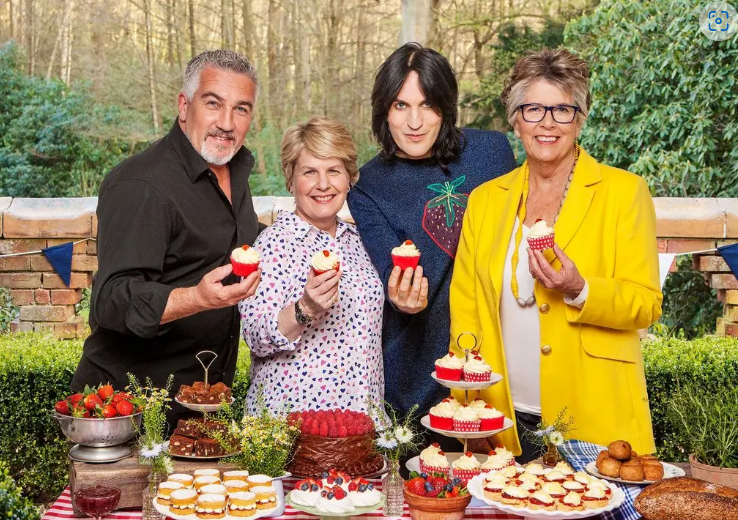
Credit...Mark Bourdillon/Love Productions, via Channel 4
A word of warning: The BBC’s “Great British Baking Show” is not mean and dispiriting television. If you enjoy the petty and often cruel conflict most reality programs include, this won’t be your cup of tea.
Set among vast greenery, the “Baking Show’s” prestigious venue makes for a quiet viewing escape. Have a crippling fear of climate change? A math exam on Monday? Your granddaughter hasn’t texted you back? The crisp, white competitor’s tent can tackle those worrisome distractions. Here, where the best amateur bakers in Britain compete, even President Trump seems eons away.
Since 2010, “The Great British Baking Show” has provided episodes filled with eager bakers ready to demonstrate their expertise. The show’s latest season, which includes a variety of creations (fig rolls and tarte tatins to name a few), does not disappoint. Every week, someone goes home, and someone is crowned “star baker.” The first two baking challenges, the “signature” and “technical,” may seem overly crucial to new viewers. But, as a true fan knows, who stays and who goes invariably comes down to the third challenge, the “showstopper.”
The program isn’t, however, only about baking prowess. Humorous at its core, judges Prue Leith and Paul Hollywood assume traditional good cop bad cop personas, and the witty, eccentric hosts Noel Fielding and Sandi Toksvig fool around on set.
After watching the “Baking Show,” Gordon Ramsay’s iconic profanity-filled tantrums won’t seem as indulgent as before, and the drawn-out reveal of “which chef’s dish is on the chopping block” in Food Network’s “Chopped” might feel like cruel and unusual punishment. The “Baking Show” is oriented toward celebration of people and food, rather than degradation of them. Despite Sandi’s jokes about stern Paul “not having a heart” (she compares him to the Tin Man in episode one), he displays more compassion than most reality program personalities. During the finale, when fan-favorite baker Steph’s showstopper falls short of expectations, Paul consoles her. There is something touching when he comforts her and says, “Nevermind Steph, it doesn’t matter.”
And this is precisely the point. It doesn’t matter. The eliminated contestants return at the end of the season to cheer on the finalists, and in the closing credits are pictures of participants baking and visiting each other after filming. The show has a “life goes on” attitude that is absent from our often anxious, everyday discourse. A stark contrast to the harsh media we are so constantly exposed to, “The Great British Baking Show” stands apart in its genre, rooted in good-natured humor and celebration of its contestants and their work.